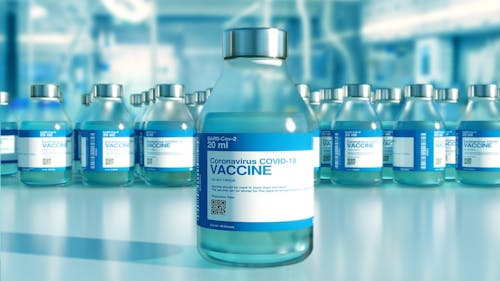Rutgers to receive coronavirus vaccines next week

Rutgers will begin receiving coronavirus disease (COVID-19) vaccines next week to administer at its vaccination sites, said Rutgers Biomedical and Health Sciences Chancellor Brian L. Strom today at a health briefing.
So far, 1 out of the University’s 3 vaccination sites, the Rutgers—New Brunswick site in Piscataway, is confirmed to receive the vaccines next week, he said. Those who have registered for vaccination at Rutgers will receive scheduling notices shortly, and after an additional announcement about registration this week, the University will assign appointments.
“We don’t know yet which vaccine we will be getting,” Strom said. “And it may change week to week, but we will hopefully know that today and send it out to be able to begin vaccination, probably mid-next week.”
He said those who receive the vaccine will not need to undergo weekly testing for COVID-19 in the Fall 2021 semester. Previously, the University said that all students, faculty and staff would be required to participate in weekly testing while on campus regardless of their vaccination status, The Daily Targum reported.
Valerie Fitzhugh, an associate professor and interim chair for the Department of Pathology, Immunology and Laboratory Medicine at the Rutgers New Jersey Medical School, discussed ways to address vaccine hesitancy in one’s community and immediate circle at the briefing.
She said it helps to lead by example in both cases. Individuals can also encourage family and friends to get vaccinated by mentioning the activities they can enjoy when fully vaccinated as well as how vaccination keeps them safe from COVID-19 infection and the long-term symptoms that can accompany it, she said.
For addressing vaccine hesitancy in Black communities who have been historically marginalized and mistreated by the U.S. public health system, Fitzhugh said actively listening and understanding their concerns about the medical system is necessary to have a productive dialogue.
“We’ve seen a lot of things that have happened over numerous decades to people of color, so we have to have difficult conversations,” she said. “Hearing them out and hearing why they don't want to have the vaccine is incredibly important, rather than just wagging your finger and saying, ‘Nope, you need to go get it.’”
Fitzhugh also discussed arguments against vaccination, such as the claim that it is unnecessary in that the rate of survival for COVID-19 is more than 99 percent. She said individuals do not know how they will react to COVID-19 and that it is better to be safe than to risk infection.
In regard to achieving herd immunity as a country, Storm said a percentage of herd immunity for COVID-19 has not been explicitly defined yet, but it is understood that the more vaccinations, the better. Fitzhugh said getting vaccinated speeds up the process of returning back to normalcy.
“The vaccine by itself will not help if people aren't getting the shot,” she said. “So we have to roll up our sleeves, get those shots in our arms, so that we really can move back to normal. That's the only way this is going to happen.”
Members of both the Rutgers and local communities will be able to get vaccinated at University sites, the Targum reported. Rutgers currently has one designated vaccination site at each of its three University campuses.



